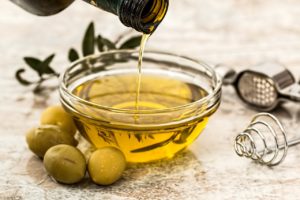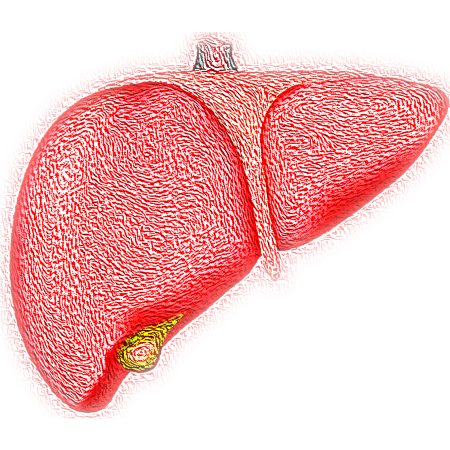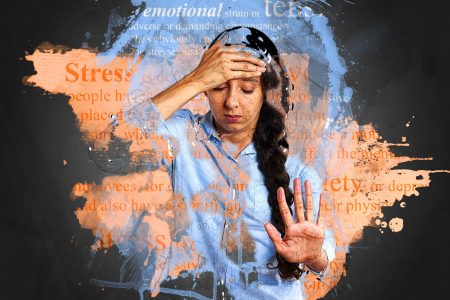Gallbladder Removal And
How It Is Impacting Your Health More Than You Think
Gallbladder Surgery and Long Term Gut, Hormonal and Mental Health Consequences
I have been seeing more and more clients with gallbladder (GB) removal and it has started to get me wondering how this is impacting one’s mental health, liver health, thyroid health, increase risk of pathogens and hormonal imbalances.
Its funny. Even though my intake form asks about surgeries, often one thinks a GB or appendix removal is no big deal and will not even write it down or mention it until I ask.
Over half a million Americans have their GB removed each year. From what I have been reading, this trend is not going away and in fact it is being removed in younger and younger generations. Something is wrong with this! We need to look further down -stream to see what is going on rather than just removing a body part!
Having your GB removed is serious. Once a doctor takes it out, it seems to me that he or she did not discuss the long- term impact and what needs to be addressed. If you had your GB removed, this should not be taken lightly. You do need to address it going forward. The problem is that health issues may not arise right away and so you don’t associate the GB removal with your current health crisis.
Obviously, there are times when emergency removal is warranted such as infection and risk of it bursting, like an appendicitis. But many other times, one has GB pain or stones and the short answer is “remove it”. This is symptom management still and one may not feel better after it has been removed because the underlying problem was never addressed.
Gallbladder Removal and Why We Need “Good” Fats in Our Diet
It is estimated that after GB surgery 13%-40% will continue to have abdominal pain. From 2017 data, 70% of those who decide to not have GB surgery had no recurrence four years later. GB surgery is more common among those in their 40’s and older age groups but reports show that there are more GB surgeries occurring now among teens to those in their 30’s.
GB disease is linked to obesity and diabetes and since these health issues are increasing in our youth, no wonder that we are also seeing more GB removals among this population.
Once it is removed you may have difficulty absorbing and utilizing your good fats, and your essential fatty acids. Or perhaps because every time you eat a food that contains fat your stomach gets upset and you have diarrhea and so you now consume a low- fat diet.
Any diet that removes a macro nutrient is not a healthy diet. Your body needs protein, fat and carbs. Fats are important for energy production, for hormonal health, help us to digest fat soluble vitamins such as D, K, A and E. We need these fat -soluble vitamins for heart protection, for immune support, for skin, hair and nails, for brain support, and hormones. But you cannot utilize them if you are not getting fat in the diet or the correct amount of bile.
Are you starting to see how the loss of the GB can impact so many areas of your health? –
This post discusses signs and symptoms that you are omega 3 deficient and why you need essential fatty acids in your diet. what to look for in a omega three supplement and why you need these fats in your diet
What Is Your Gallbladder?
Your GB is a small organ that sits directly under your liver on your right side. Its purpose is to store bile and monitor how much is needed to digest fats at your meals. Bile is a substance that contains cholesterol, bile salts, lecithin and other substances.
Your liver makes about a quart of bile per day. This bile is then stored in the gallbladder where it is released in a very controlled manner. Thus, the GB regulate the flow of bile, how much is needed to digest fats.
Once the GB is removed, the bile goes directly from the liver to the small intestines and not in a controlled manner. This means that if you eat fat, you may get a huge amount of bile released which could end up causing diarrhea. Then you may decide to avoid fats all together.
This is a mistake because your body needs good fats for mental health, brain health and physical health, for heart health, and to reduce inflammation.
I spoke to someone recently who had his GB removed and he ate raviolis which caused him pain so he said he avoids this food, he said he is scared to eat butter and every time a food upsets his stomach he removes it from his diet so now he is reduced to a very limited low fat diet.
Gallbladder Surgery and the Risk of SIBO and Other Pathogens
It ends up being a vicious cycle that you cannot escape from if you do not know what the root cause is. You may have your GB removed because of stones or pain and think that is the end of your problems but months down the road you may notice you have other gut pain and issues. How could this be when you took care of the problem? So now you just keep eliminating more and more foods from your diet, yet the problem persists.
To put is simply, if you are not producing the correct amount of bile after surgery, you run the risk of increase in pathogens developing.
Bile acts as a microbial. Your bile, made of bile salts, fats, and bilirubin, picks up nutrients and toxins and most of the bile is then sent to the liver where it then will be cleaned up and then sent back to the GB (if you have one). If you did not produce enough bile the liver would not be able to do its job of expelling waste which could then accumulate in the body.
Over 99% of your bile is recycled through this process during digestion. This bile cycle is an important mechanism to detoxify and prevent pathogens. This secondary bile salts is what inhibits the growth of pathogenic bacteria in the colon. If this cycle is not functioning properly it can contribute to SIBO (small intestinal bacteria overgrowth) and other gut pathogens which can cause gut pain, gas, bloat, constipation, diarrhea, IBS and so forth.
Hence, once the GB is removed you have automictically compromised bile secretion and now run the risk of SIBO and other pathogens in the colon and small intestine.
How It Impacts Your Hormonal Health
(thyroid, insulin, estrogen)
If you had your GB removed and are now consuming a low-fat diet or just not absorbing your fats along with impaired detoxification, this can be a root cause of your Hashimoto’s, an autoimmune thyroid disease. While it may seem strange, a poor functioning GB or lack of one can cause problems with thyroid function. Both play a role in digestion and metabolism so it follows that if one organ is not working properly, the other may suffer. It can also go vice versa in which a poorly functioning thyroid can lead to the GB becoming sluggish and congested. A bit of which came first-the chicken or the egg….
It is also important to get your thyroid checked since you need fat to produce an enzyme that converts T4 to your active thyroid hormone T3. This is very important to understand because fats are responsible for this conversion to take place. If it cannot happen, you may not have adequate levels of your T3 hormone which is responsible for many of the neural and metabolic functions in the body
Thus, if you have symptoms of poor thyroid function after GB removal (or even before with impaired bile flow) it is warranted that you get the proper testing of a full thyroid panel along with antibodies. The down stream issue may not be to focus on the thyroid but to focus on the bile and GB (or lack of one) instead.
Women who have had their GB removed may have some signs and symptoms of estrogen dominance/estrogen imbalances a few months after surgery. This may be since bile helps the liver excrete hormones such as excess estrogen and now this excess is not being excreted. However, the hormonal effects, nor for that matter other effects related to GB removal, often go unrecognized and unaddressed.
Having your GB removed can also lead to insulin resistance. Research suggests that bile acids activate a little- known receptor to overcome the loss of insulin sensitivity. Thus, when bile is not released in optimal amounts your blood sugar levels may increase.
How It Can Impact Your Mental Health
While I can find only a few studies and data on the relationship between removing the GB and anxiety, depression and ADHD it goes without saying that the removal can impact your mental health.
Why?
If you no longer can break down fats that are needed for brain and mental health support, what impact is this going to have on you long term? You need quality fats in your diet! Your brain is made up of mostly fat.
During my research I came upon this site called www.lifewithnogallbladder.com and it was an interesting read. While it is antidotal, there are people on the forum stating that they now have anxiety or worsening of their anxiety post- surgery. It goes without saying that if you are not getting your essential fatty acids and not utilizing fats from food, nor absorbing fat- soluble vitamins, your brain health and mental health are going to be impacted.
I think the mental health and GB removal connection needs to be examined more closely and should be ruled out when addressing clients with mental health issues.
One study said there is an association between GB removal and risk of depressive disorders among females but did not find the same results in males. Could it possibly be related to the possibility of excess estrogen not being eliminated in women and leading to estrogen dominance?
The other consideration is the impact on gut health and possibly the development of pathogens which can lead to leaky gut syndrome. Your mental health is tied to your gut health so GB removal could lead to gut issues which then could lead to a mental health issue. (Your gut is called your second brain for a very good reason!)
Why Bile Is So Important
Bile is the thick digestive fluid that emulsifies fats so that the enzyme lipase can breakdown your fats into fatty acids which are then absorbed via the digestive tract. When you have a gallbladder, after meals the gallbladder contracts and provides the amount of bile needed into the small intestines. Without the GB there is no regulation of bile coming from the liver to the SI.
Bile is important because
- Bile regulates the gut bacteria, destroys pathogens, and is thought to be antimicrobial
- Bile is important for liver support in excreting toxins including excess cholesterol, excess estrogen, body’s waste, heavy metal and so forth.
- Since bile helps remove excess estrogen, bile plays a role in sex hormones balance
- Helps you to digest fats, and stimulates muscle action to aid waste removal
- Enables absorption of antioxidants and fat- soluble vitamins (A, D, E, and K, EFA’s)
- Even some antioxidants in fruits and vegetables are fat soluble so you may not be able to absorb lycopene, lutein and carotenoids for example
- If you take these in supplement form, it could still be a waste of money as you may not be making the bile to digest and absorb them.
Thus, without a gallbladder there is no regulation of the bile entering the SI.
Without the GB this can lead to intestinal permeability (aka Leaky Gut) and painful digestive symptoms. Because you don’t have the GB to squirt out the amount of bile needed, your liver may provide too much or too little into the SI.
If you eat a high fat meal, you may only get a trickle of bile from the liver and end up with food/fats that are poorly digested because there was not enough bile to digest it. (diarrhea, indigestion, bloating, nausea). You need the right amount of bile at the right time! This is the job of your GB.
Congested bile can happen whether you have a GB or not but, in this case, we are discussing the results of a GB removal. A refined diet in rancid fats can gunk up the bile ducts and thus the bile cannot flow easily. This leads to indigestion and pain.
Symptoms You Are Not Absorbing Your Fats
- Floating stool
- Digestive upset after meals
- Dry skin
- Hair loss
- Oil in your stool
- Stool light in color (tan not brown)
- Diarrhea several times or more per week
- Bowels that smell bad
- Sticky stool
- Skin rash
- Weight loss unexplained
- Gassy after meals
- Feeling nauseous after meals that contain fat
- Depression
- Anxiety
- Weak immune system
- Bleeding gums
- Poor wound healing
- Weak bones
Dietary Changes You Should Make If Your Gallbladder Has Been Removed
Most of the diet should be plant based Don’t overeat as digestion is already difficult for you, don’t place even more burden on the digestive process.
Here are some tips to help you digest your foods and to support gut health once your GB has been removed.
- Take digestive enzymes with meals. Make sure it contains lipase which is the enzyme needed to break down fats. You can take them right before or during the meal. Some contain ox bile but if not, add this supplement into your routine as well. Ox bile is an important supplement to take if you had your GB removed. Take this at the start of the meal that contains fat.
- Include foods, herbs and beverages that stimulate bile flow. This includes turmeric, fish oil, beets, hot tea, sips of hot water with lemon, bitter greens, limes
- Reduce dairy and grains in the diet
- Taurine is needed for bile production. Also found to support thyroid function
- Look for liver/GB supplement support that contains herbs such as milk thistle, dandelion root, and artichoke leaves which will support a healthy liver and increase bile production and flow
- Ox bile-often you can take this with enzymes and other bile supportive nutrients. Bile salts from oxen have been shown to increase bile flow and support digestion of your fats in animal studies.
- Inositol: This sugar has been shown, in rat studies, to improve bile acid secretion as well as reduce oxidative stress.
- Andrographis: I normally suggest this for cold and flu season immune support but this herb can also increase bile flow and the levels of bile salts and bile acid. This is due to a compound andrographolide.
I know people who avoid butter once they have GB removal BUT Bile is not required for short chain fatty acid breakdown! This includes butter, vinegar, some meats, fruit, vegetables, legumes, inulin sources (artichokes, garlic, leeks, onions, asparagus), FOS (banana, onion, garlic, asparagus), resistant starch ( rice, beans, legumes, potato that has been cooked and cooler, green banana), pectin ( apple, apricot, carrots, oranges), Guar Gum (beans and legumes).
Bottom Line: Once your GB has been removed, you shouldn’t stop there but support your body and give it what it needs now that it is missing an important organ. Symptoms may not occur until many months later and you may not associate new symptoms and health issues with the GB surgery.
Sources
https://thyroidpharmacist.com/articles/how-gallbladder-affects-hashimotos/
https://www.ncbi.nlm.nih.gov/pmc/articles/PMC4460135
https://www.healthhype.com/what-is-bile-production-function-salts-storage-secretion.html
Balch, J. & Balch, P. (1990) Prescription for Nutritional Healing. NY: Avery Publishing
Balch, P. (2012) Prescription for Herbal Healing. Second Edition. NY: Avery Publishing.
Bauman, E. & Friedlander, J. (2015) Foundations in Nutrition. CA: Bauman college.
Kharrazian, D. (2010) Why do I still Have Thyroid Symptoms When My Lab Tests Are Normal? CA: Elephant Press




Leave A Comment
You must be logged in to post a comment.